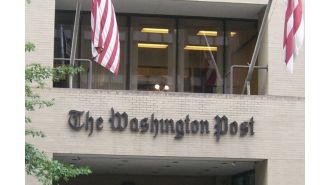“They Should Have Been Fired on the Spot”: In Elkhart, Indiana, the Talk Is All About the Police and a Video
At a town hall meeting, the Police Department’s second in command defended his officers and criticized reporters. “What’s all this digging?” he said, while accusing the South Bend Tribune and ProPublica of an “ambush” for calling officers to ask for their comment.

One after another, speakers at a town hall meeting Tuesday in Elkhart, Indiana, criticized the city’s Police Department after recent revelations about officers who beat a handcuffed man and the disciplinary records of the agency’s supervisors.
The town hall was the third public forum hosted by the mayor in a week, each one dominated by talk of the police. Last week, the South Bend Tribune and ProPublica reported that 28 of the department’s 34 supervisors, including Police Chief Ed Windbigler, had been previously disciplined. Fifteen have been suspended. Seven have been involved in at least one fatal shooting. Early this month, the news organizations published video of two officers punching a suspect in the face in the police station’s detention area.
Most of the speakers Tuesday wanted to talk about the beating — and what happened afterward. Windbigler issued written reprimands to officers Cory Newland and Joshua Titus five months after the fact, and he described their actions to a civilian oversight board as going “a little overboard,” with no mention of the punches thrown. Only after The Tribune requested the video did the city announce this month that the officers would face criminal charges. The video shows two other officers — including Sgt. Drew Neese, the son of Elkhart Mayor Tim Neese — looking on as the handcuffed suspect is beaten.
“They should have been fired on the spot,” one man told the mayor during Tuesday’s meeting. “And, with respect to you, sir, your own son should be, too.”
While a few speakers defended the police, saying they put their lives on the line for the good of the community, one man asked the mayor, “Why does the trust in the chief remain?” He asked Neese if he contested anything in the recent story by The Tribune and ProPublica about the department’s supervisors, including one who was promoted to sergeant after having been disciplined more than two dozen times.
At that, Todd Thayer, the Police Department’s assistant chief, spoke up from the back of the room, saying he wanted to respond to the question. He walked to the front and, for the next 10 minutes, defended his officers and attacked the media.
Thayer described the department’s reaction when it started receiving public records requests from a Tribune reporter: “Who is this guy? … What’s all this digging? And it’s just, request after request after request.” Thayer said the police went to the city’s legal department and asked: “Does anybody know what’s going on? Everything’s going good in Elkhart. Why are they coming over here, into our backyard, and trying to disrupt everything we built?”
Thayer also criticized reporters for reaching out to officers to ask about their disciplinary records. He took issue with a ProPublica reporter who phoned a sergeant to ask about his personnel history, which included 11 suspensions and 15 reprimands. “I mean, you’re gonna ambush my officers like that? That’s ridiculous,” Thayer said.
Stephen Engelberg, ProPublica’s editor-in-chief, said Wednesday there is nothing improper about seeking comment from someone who is going to be named in a story: “This is the essence of journalism. We hear things, we check them out. That’s what any good reporter does. That’s not an ambush; that’s asking questions. How on earth could we be fair otherwise?”
Thayer said at the meeting that this “type of reporting” was devastating the policing profession: “The thin blue line is that line of officers that keeps the predators and the sex offenders and all the other garbage from all these law-abiding citizens. We’re the final stopgap. And that’s falling apart. I fear for this country, I fear for my son, because we’re getting fewer and fewer police officers who want to become police officers.”
Thayer was among the 28 supervisors who have been disciplined, according to the review of personnel files. In 2013, he was demoted two ranks for making flippant comments about a fatal shooting. Witnesses reported he said a fellow officer could now check shooting a person off his “bucket list.” Thayer was promoted to his current position by Windbigler.
After Thayer spoke, one woman responded: “This is not about a newspaper article. There is clear video evidence.” A man added: “So while you feel embarrassed, and that’s not a good feeling, we feel intimidated. … We feel scared when we see police, because things like this happen.”
In addition to Tuesday’s town hall, the issue also came up during Elkhart’s regularly scheduled city council meeting Monday. Councilman David Henke said he was disappointed in the recent revelations about the Police Department.
Henke said the lack of disclosure and the 10-month delay between the beating and the filing of charges “harmed the public trust.” Neese has said he learned about the video only after The Tribune requested a copy of it in October. He then notified prosecutors, after which Newland and Titus were charged with misdemeanor battery.
“It was no less than a purposeful cover-up in my opinion,” Henke said during the city council meeting.
“All eyes are on us and this department at this time,” he added. “It is not fair to the dedicated officers, nor do these actions, or lack of actions, represent our city and where we are heading. … Turning a blind eye in no way promotes a professional police force, and we will not accept anything less than a transparent, professional department. It’s too critical of an issue … not to put full effort in correcting, regardless of resignations that may be in order.”
Henke could not be reached to explain what he meant by “resignations that may be in order.”
At a town hall meeting last week, Roger Mansfield, a member of the Police Merit Commission, the city’s civilian oversight board, said the commission wasn’t made aware of the video’s existence until it was published by The Tribune and ProPublica.
Neese issued a press release last Thursday saying he had asked the Indiana State Police to conduct a “complete investigation” of the city’s Police Department. But this week the state police said it was declining the mayor’s request. Any such review was more suited to the U.S. Department of Justice, the state police said.
However, it’s not clear the Department of Justice would conduct such an investigation, even if asked. Under the Trump administration, the Justice Department has retreated from oversight involving local police. On Tuesday evening, Neese was asked by an audience member what he plans to do next. “I have not contacted the Department of Justice,” he said. “I’m not certain I’m going to.”






